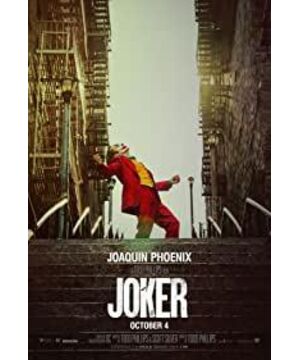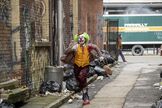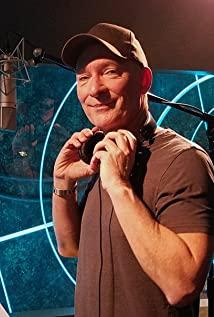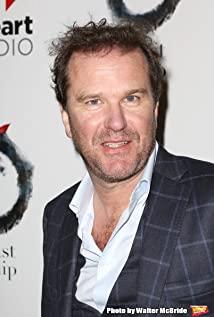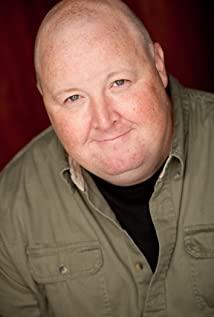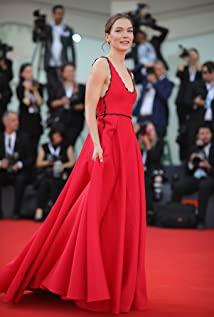(No spoilers for this article)
The 76th Venice Film Festival has not yet ended, and the explosion of "Joker" has become a reality, and it is also one of the films with the longest audience applause after the premiere screening of this film festival.
However, the rating of the international journal reflects the situation of the film. Although it is good overall, it has received three four and a half stars, and one media outlet also gave it a one-star score. The absence of five stars may mean that everyone has a little reservation about it. It is foreseeable that it will be a controversial new work after it is released in the future. So, how do we understand this brand new image of a clown?
1.
When it comes to clown movies, Fellini has to be mentioned.
Fellini pointed the camera at the clown. The shadow of the clown exists in almost all of his key works, and no one does not remember the clown story in "Broad Road". It can be said that Fellini discovered the clown in the mundane and borrowed the screen to give it a unique cultural aura.
This halo is based on the clowns he shot, but also because he made his entire artistic career into a movie about clowns. In the documentary work "Joker", he shows a not so bright, slightly quiet, and gloomy Italian town of Mini, where Fellini was born. The child who is curious about the world allows the audience to fully appreciate The splendor of the circus and the abundance of clowns, while the great sadness accompanies faintly like shadows, which seems to have become the creative background of Fellini's life.
Director Billy Wilder called Fellini "a first-rate clown with unique ideas." If you summarize the life of this great director, clown is a key word that cannot be bypassed. He claims to be a clown, and movies are his stage. He described himself as a "liar", and it is the clown that best fits the specific image of a "liar". His clever eyes and beads, a clown-like creative concept: In his eyes, not only he is a clown, Rossellini is a clown, and all other directors are clowns with different looks.
In the autobiography "The Wandering Clown" (Chinese translation), Fellini said, "I am often referred to as a lunatic. Crazy is a behavior that deviates from the norm and I don’t consider it shame. Every individual has a unique path of execution. In my understanding, the so-called normal spirit means learning to tolerate those unbearable things and not to scream."
In his view, life is a combination of magic and bread, with fantasy on one side and reality on the other. "The clown is a mirror through which people reflect their distorted, funny, and ridiculous side, and is their own shadow. It shows the irrational and instinctive side of human beings, and also expresses the resistance and denial of God in everyone's heart."
Because of his love for clowns, Fellini often feels the end of the golden age of the circus. If it were not for the decline of the circus industry, without Rossellini, he might not even have become a film director. This seven-year-old was for the circus. The boy who left the group will walk out of another life trajectory.
Fellini attributed the weakness of the circus to television. He may not have thought that it is the rise of popular culture represented by television that makes clowns more likely. As a result, the clown from Europe, as an artistic symbol, has come to the end of the lonely truth, and the road of clowns in the United States that embraces the public continues to evolve.
In the United States where Chaplin, talk shows and comedy were born, the clown seemed to return to the secular and folk, and the image became more concrete. In the field of genre films, it has become an endorsement of horror, and even at the level of popular culture, as a symbol that cannot be ignored, it has been incorporated into the superhero comic world to play the villain.
We no longer need to count the screen clowns after Fellini. After Fellini, the artistry of many clown stories can be regarded as the recurrence of Fellini's ideas. In the second half of the last century, the exchanges between various European artistic films and American films often received little attention. Fellini screamed in Europe, and the United States and the world echoed, and the image of the clown continued to return.
However, when the echo finally disappears, for the world, the clown has become a kind of "childhood fear". This has a dual meaning: for individuals, it is a common experience; but standing in the business age, in the sea of pop culture, clowns become as distant as childhood memories.
2.
When describing the clown, Fellini said, "Jokers can do what they want, smash things, tear, set fire, roll on the ground. Not only will people not blame you, they will applaud you." In American pop culture , Fellini’s clowns constantly "return to the soul", and "destructiveness" is the gradually materialized side, such as the horror genre film "IT (Return to the Clown)" in recent years.
In YouTube, there is a popular broadcaster who specializes in shooting short videos with cars rolling over everything. Once released, there are tens of millions of traffic. It shows that mankind does not always "build" the world, and "destroy" coexists with "build". In the depths of human nature accustomed to the shackles of civilization and morality, the entire society still hides an uncontrolled and violent side.
Nolan's "Dark Knight" was born in response to a comic, and achieved the ultimate in amplifying the "destroy" of the clown. The movie builds a mirror image relationship. The hero is repairing, while the villain is destroying. It asks us: Why does the appearance of the Batman representing justice arouse the "joker" in some people's hearts? Why is it that the more you emphasize justice, the more you fall into the swamp of evil?
Just like the line the Joker said to Batman in the movie, "Your existence makes me complete."
Looking back at Nolan's movie sequence, "The Dark Knight" is the most special one. In my opinion, it is largely the script and character performance that completes its speciality. In other words, Nolan, who is good at achieving the ultimate in audiovisual, encountered a good script, and a group of good actors made the cold skills human.
The clown played by Heath Ledger is not a complete image. He is a side profile. His function still exists to set off the image of the righteous Batman, so he is only a supporting role. It is because of Heath Ledger's play that there is a deeper dark knight.
The script does not end here. "Dark Knight" also added a character called Dante, known as the Light Knight. For New York, he is a "hero with a real face." It is also because of him that the Joker has grasped the best strategy to disintegrate Batman's image, not to defeat the opponent in strength, but to set up a psychological dilemma for him on the moral level. Defeating the light knight means defeating the dark knight.
Dante became the key to the black-and-white game. When the clown set up a situation to capture him and his girlfriend, and faced with the situation where Batman chose himself and his girlfriend died tragically, Dante's mind was successfully "eroded" by the clown. He wandered in the gray area and became a variable. In the film, half of his face was burned, and he became a double-faced man of half a knight and half a clown.
It can be said that the character design of "The Dark Knight" is comprehensive. Heroes, villains, middle characters, and gangsters that cannot be ignored have constructed a precise social structure evolution model. Looking back now, it has shown a very accurate foresight of the sudden changes in American society in recent years.
At the same time, if you regard it as a sociological experiment or model, it is also open for people to interpret from different levels, because not only the United States, but also the past and future in other places have similar historical processes.
After Fellini endowed the clown with sublime art, a new symbol that transitioned from an artistic symbol to a sociology was erected through the shaping of popular culture.
3.
Because of the success of the "Dark Knight" clown, the release of this "Joker" with the clown as the protagonist seems inevitable. It can be guessed that after the "Joker" project was approved, the first problem faced by the creators was what the story should tell.
The clown as a symbol of artistic value has long been explained clearly by Fellini; the clown as a sociological symbol also has an outstanding expression in the dark knight. I watched this film at the Venice Film Festival, and I also understand that if the film wants to be unique, the only way to go is the "Joker" currently presented——
Think of Fellini’s Joker and "The Dark Knight" as the two points at the bottom of the triangle. "Joker" only has to climb the top of the pyramid. And the most convenient ladder is to take a one-man show to tap humanity. The two concepts of art film and commercial narrative once again mingled, and this globalized "Frankenstein" was born.
We can continue to guess. Joaquin Phoenix should also think that too many people in this world have acted as clowns. If he wants to be successful in his acting, he needs to surpass the previous images. He should have repeatedly reviewed the performances of many versions of clowns. And materials.
In order to create characters, "Joker" has achieved the ultimate in laying out the plot. It is a 100% clown one-man show. Although the story is derived from the superhero universe, it is more like a biopic in an independent art movie. Give play points to give Joaquin Phoenix plenty of performance space. The reality shows that Joaquin's acting skills have been unanimously recognized by the Venice Film Festival media.
The movie presents a complete image of a clown that is completely different from the past. He has the stress and trauma of his childhood, and he often laughs at inappropriate occasions, causing misunderstandings. There is such a plot in the trailer. Sitting on the bus, he amused the kid next to him with his expression, while the other's mother coldly stopped all this. The film uses similar plots in all dimensions to pave the physical and mental dilemma of the male protagonist being rejected by the social environment.
More importantly, as a one-man show for clowns, the film does not fall into a state of "self-talking". It does not abandon its political demands and social expression, and boldly endows clowns with a more realistic social character. As a prequel to The Dark Knight, the film focuses on the misunderstanding of the actor and the Wayne family's identity. This misunderstanding directly refers to the potential contradiction of the ever-increasing gap between the rich and the poor in American society. This has also led to "Joker" being destined to stand on the edge of the superhero universe and become an outlier among them.
"Joker" puts the entire character in the context of American talk show culture. It possesses Fellini's artistry about loneliness and searching for self-salvation. It reminds us of that funny and ugly Jeremina, and Joaquin’s excellent acting skills also make The audience walked towards themselves, towards the clown in each of us. Therefore, the actor is no longer just a clown, he is one of hundreds of millions of ordinary people.
At the same time, "Joker" places the male protagonist on the increasingly fierce class conflicts in the United States, and it has been affixed with the social symbol of "The Dark Knight". It seems to tell us about the past of Heath Ledger's version of the clown, revealing that a marginalized ordinary person may have a change in fate after encountering social injustice: the marginal person who originally no one cared about turned out to rely on a society The incident has become a symbol of populism.
What is worrying is that doing so in this way will also bring risks to "Joker" itself, and also bring artistic losses. An extremely delicately portrayed individual character, when placed in a container composed of American cultural background and social reality, will arouse the position hidden in the audience's mind, which will completely depend on whether the audience is Batman or the Joker.
A good film is good at bridging social rifts, but when a work not only does not let the audience let go of obsessions, but intensifies the contradiction between the left and the right, its fate becomes uncertain.
But in any case, this "Joker" standing on the shoulders of giants is the most important movie we need to watch this year.
View more about Joker reviews


